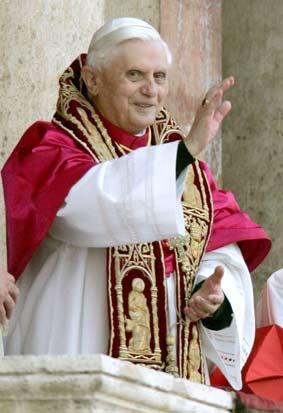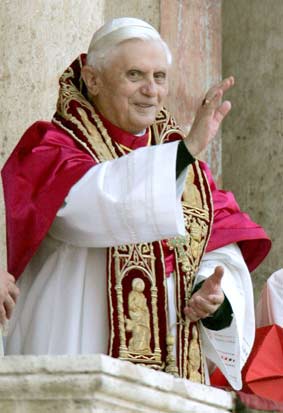The state that does not exist

The Catholic church exploits its elusive status as a state to invoke diplomatic immunity to shield its sex abusers, but refuses to cooperate with international war courts. Eamon McCann reports
The recent BBC Panorama programme on the Vatican's role in concealing child sex abuse by priests featured an interview with a district attorney who complained about a church strategy of passing evidence into the possession of the Papal Nuncio in Washington, who is protected from subpoena by diplomatic immunity.
This highlighted the elusive status of the Catholic church as a state as well as a religion.
It is widely believed that this status has to do with Vatican City, that it is this 108-acre entity which has a seat at the UN and enjoys diplomatic representation in 174 countries. But not so.
The Vatican website explains: "Vatican City is the physical or territorial base of the Holy See, almost a pedestal upon which is posed a much larger and unique independent and sovereign authority/ rule: that of the Holy See... It is the Holy See which is represented by the delegations accredited by the Secretariat of State to international organisations."
Insofar as it is possible to define it in material terms, the "Holy See" refers to the government of the worldwide church – the pope and the bishops. This is the context in which we can best understand the Ratzinger letter of May 2001 warning that the proceedings of any local church investigation into clerical sex abuse should be reported not to the civil authorities but to the relevant department of the Holy See – Ratzinger's office.
The formulation of the Holy See resting on Vatican City arises from the circumstances of the city-state's creation in 1929 by a treaty signed by the Italian fascist leader Mussolini and Cardinal Gasparri, Pius XI's secretary of state. The intention was "to guarantee the 'indisputable sovereignty' of the Holy See".
The Holy See's UN participation arose in turn from the fact that Vatican City issued stamps and ran a radio station. When, in 1948, the UN invited the Universal Postal Union and the International Telecommunications Union on an ad-hoc basis to attend sessions dealing with matters relevant to their remits, the church grasped the opportunity with eager alacrity. Soon its representatives were turning up at all manner of meetings.
In 1964, the Holy See informed UN secretary general U Thant that it had appointed a "permanent observer" to the UN Assembly in New York. U Thant wrote back accepting the appointment. He later explained that, since there was no provision for "permanent observers" in the UN charter, "I have been following a line which seems to be the only possible one – to accept observers when such an arrangement is proposed in cases where the country in question is recognised diplomatically in this form or that form by a majority of UN members." As the Holy See's UN team possibly expresses it at Christmas parties: "We're here because we're here."
In July 2004, responding to a request from the Holy See, the UN General Assembly confirmed its status and expanded the rights of its representatives. None of the 191 member states dissented. There has never been a debate or vote on the UN status of the Holy See.
No other religion and no NGO of any variety has anything remotely approaching this level of involvement in, and influence on, secular world affairs.
The Holy See explains that it is content with permanent observer status rather than full UN membership because it prefers "to maintain absolute neutrality in specific political problems". That is, it can be a state when it wants and not when it doesn't. It punches with the weight of a state in global fora on women's rights and reproductive politics, frequently in collaboration with Islamist states, and invokes a state's diplomatic immunity to shield its sex abusers.
But last year, Carla del Ponte, chief prosecutor of the International Tribunal into war crimes in the former Yugoslavia, was rebuffed when she sought the help of the church in locating Croatian alleged war criminal Ante Gotovina. Benedict XVI ignored Del Ponte's direct plea to him to intervene. Secretary of State for Foreign Affairs Archbishop Giovanni Lajolo explained, "The Secretary of State is not an office of the Holy See that can collaborate as an institution with courts." Now you see us, now you don't. p
